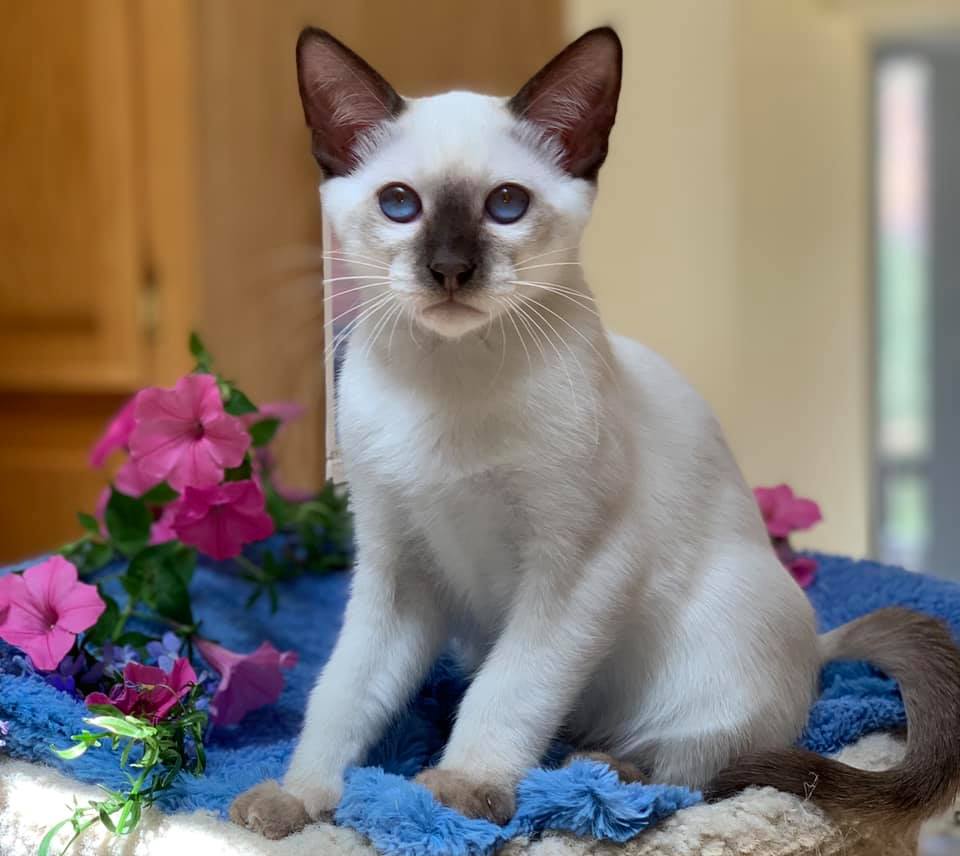Feeding a Balinese cat isn’t just about meeting basic dietary requirements, it’s about supporting a breed known for its high energy, emotional sensitivity, and cognitive sharpness. With their lean, athletic build and silky coat, Balinese cats require a diet that fuels both body and mind. Unlike more sedentary breeds, they burn calories through constant movement and social engagement, which means their nutritional needs are more dynamic than many pet owners realize.
Protein should form the foundation of a Balinese cat’s diet, but not all sources are created equal. Animal based proteins like chicken, turkey, and fish deliver essential amino acids such as taurine, which supports heart health, vision, and neurological function. While plant-based proteins may appear in some commercial foods, they lack the complete amino acid profile cats need. Balinese cats, in particular, benefit from high quality meat sources that maintain muscle tone and support their active lifestyle. Owners should look for foods with named proteins as the first ingredient, avoiding vague terms like “meat by-products” that often signal lower nutritional value.
Fat plays a critical role in maintaining the breed’s luxurious coat and supporting brain function. Omega-3 and Omega-6 fatty acids, especially those derived from fish oil or flaxseed, help reduce inflammation and promote skin health. Balinese cats are prone to mild respiratory sensitivities, and anti-inflammatory nutrients can mitigate flare ups triggered by environmental changes. Including these fats in the diet not only enhances physical appearance but also contributes to long-term wellness.
Carbohydrates should be approached with caution. While cats are obligate carnivores and don’t require carbs for survival, small amounts of digestible fiber can aid in digestion and prevent hairballs a common issue in long-haired breeds. Whole grains like brown rice or oats, when used sparingly, can support gut health without contributing to unnecessary weight gain. However, excessive fillers like corn or wheat can lead to bloating and reduced nutrient absorption, especially in cats with sensitive stomachs.
Hydration often goes overlooked, yet it’s vital for Balinese cats who may not drink enough water on their own. Wet food, either as a primary diet or a supplement to dry kibble, helps maintain kidney function and supports urinary health. In warmer climates or during periods of high activity, hydration needs increase significantly. Pet fountains and flavored water additives can encourage drinking, especially for cats that are finicky about still water.
Portion control and feeding frequency also influence health outcomes. Balinese cats benefit from scheduled meals rather than free feeding, which helps regulate metabolism and prevent obesity. Because they are highly intelligent and food-motivated, puzzle feeders and interactive bowls can turn mealtime into a mentally stimulating experience. This not only slows down eating but also reinforces positive behavior and reduces boredom related stress.
Global pet owners should consider regional availability and cultural feeding practices when selecting food. In areas where commercial brands are limited, homemade diets may be necessary, but these require careful balancing of nutrients. Consulting a veterinary nutritionist ensures that homemade meals meet all dietary needs without risking deficiencies. In regions with high humidity or heat, food storage and freshness become critical, as spoiled ingredients can lead to gastrointestinal issues.
Ultimately, feeding a Balinese cat is an exercise in intentional care. Their emotional intelligence and physical vitality demand a diet that’s as thoughtful as their personality. Owners who prioritize quality ingredients, hydration, and enrichment during feeding will find their cats not only healthier but more engaged and affectionate. This breed doesn’t just eat to survive, it eats to thrive, and the right diet becomes a cornerstone of a joyful, enduring relationship.
Related Cats

